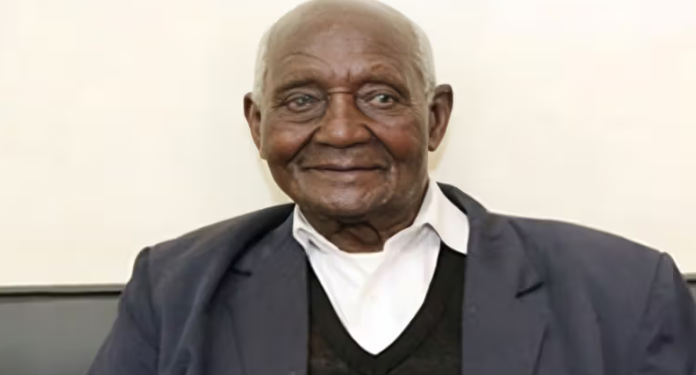Gerald Gikonyo’s journey from humble beginnings to billionaire status is a testament to his resilience and determination. Born in the 1930s, he embarked on his path to success alongside his friend Gerishon Kirima, who has since passed away.
Together, they ventured from their village in Murang’a to Nairobi, with nothing but a burning desire to provide for their families.
In Nairobi, Gikonyo’s first venture was selling cabbages alongside Kirima at Marikiti market. Additionally, he took to hawking in neighborhoods predominantly inhabited by Indians.
Despite the challenges he faced, Gikonyo persevered, eventually transforming his humble beginnings into immense wealth.
“Selling vegetables was tough because if it was raining, you would have to work in the rain. And you had to rush so that you did not find the families had already cooked,” Gikonyo explained in an earlier interview in 2021.
Gerald Gikonyo’s entrepreneurial journey continued to flourish as he ventured into various business ventures. Recognizing the importance of providing opportunities to others, he employed individuals like former Equity Bank Chairman Peter Munga as casual laborers in his businesses.
Expanding his revenue streams, Gikonyo ventured into coffee farming and became a member of the Kenya Planters Co-operative Union’s coffee mill coffee plantation farmers.
With a firm belief that formal employment was not his calling, he focused on building his own business empire.
In 1947, Gikonyo made a significant move by teaming up with five friends to establish Mwihoko General and Rwathia Supplies. Leveraging his experience from managing a hotel, they ventured into the hospitality industry, with Gikonyo taking the helm in managing their hotel operations.
As Kenya moved towards independence in the 1950s, Gikonyo and his associates seized opportunities to acquire property and buildings across Nairobi.
Among their notable acquisitions was the building housing Sabina Joy along Moi Avenue. They also invested in plots where commercial and residential buildings were constructed, expanding their business empire.
However, the journey to success was not without its challenges. The tumultuous period of Kenya’s fight for independence, marked by the Mau Mau uprising, disrupted the economy. Despite these challenges, Gikonyo and his team remained resilient, setting their sights on accessing the city center to further expand their business ventures.
In 1952, they began acquiring entire plots and constructing commercial and residential buildings, despite the disruptions caused by the Mau Mau soldiers. Through perseverance and strategic vision, Gikonyo continued to build his business empire, leaving behind a legacy of entrepreneurial success.
“When we returned, we decided that we would henceforth enter the city centre, where we were not allowed before. Our idea was to rent buildings and start businesses.” He recounted.
“But most of the buildings we wanted to rent were owned by Asians. They were fearful of the Mau Mau, so many of them were migrating from Kenya and selling those buildings. This is how we started buying some of the buildings that we own to date,” explained Gikonyo.
Gerald Gikonyo’s entrepreneurial journey evolved over many decades, transforming a small company owned by friends into a vast conglomerate comprising over 50 companies and employing more than 100,000 people. His impact extended beyond business, leaving a lasting legacy in various aspects of Kenyan society.
Gikonyo’s residence on Luthuli Avenue in Nairobi stands as a testament to his enduring presence in the city.
This home, where he spent his final days, symbolizes his deep roots and connection to Nairobi’s bustling Central Business District. It serves not only as a residence but also as a reminder of his significant contributions to the city’s commercial landscape.
While details about his family life remain relatively scarce, reports suggest that Gikonyo had a large family, including four wives, 23 children, and numerous grandchildren and great-grandchildren. His legacy extends not only through his business ventures but also through the generations of family members he left behind, each contributing to his enduring impact on Kenyan society.
Gerald Gikonyo, the billionaire entrepreneur, passed away while in recovery at his residence along Luthuli Avenue in Nairobi, according to his family.



